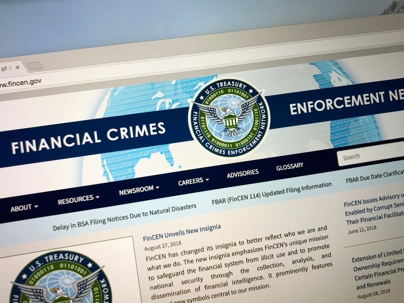Nationwide Injunction Against Enforcement of the Corporate Transparency Act: Federal Court Challenges Congressional Overreach
On December 3, 2024, a federal court issued a nationwide injunction halting the enforcement of the Corporate Transparency Act (CTA). This decision, handed down by Judge Amos L. Mazzant in the Eastern District of Texas, addresses questions about federal authority and constitutional limits. The ruling responds to a lawsuit filed by small businesses, individuals, and associations challenging the sweeping requirements imposed by the CTA.
Summary of the Facts
The Corporate Transparency Act, an unprecedented law enacted as part of the Anti-Money Laundering Act of 2020, requires companies to report detailed beneficial ownership information to the U.S. Financial Crimes Enforcement Network (FinCEN). Congress intended the law to prevent financial crimes like money laundering by increasing transparency. As the decision points out, there are more than 2,000,000 companies formed every year in the United States and most if not all states do not require information about their beneficial owners. The plaintiffs, a group of small businesses, individual owners, and advocacy organizations, argued that the CTA imposes unconstitutional burdens. They asserted violations of the First, Fourth, Ninth, and Tenth Amendments and sought to block its enforcement.
The Court’s Analysis
Judge Mazzant’s decision to grant the preliminary injunction largely relied on four factors:
- Likelihood of Success on the Merits
The court found that the plaintiffs had a substantial likelihood of prevailing on their constitutional claims. It determined that the CTA represents an unprecedented federal intervention into an area traditionally governed by state law - corporate regulation. Judge Mazzant emphasized that this federal mandate could infringe on state sovereignty and exceed Congress’s constitutional authority. Furthermore, the court noted that the CTA’s broad and mandatory reporting requirements might violate fundamental constitutional rights, including privacy protections. - Irreparable Harm
The court agreed that enforcing the CTA would cause irreparable harm to the plaintiffs. It highlighted the significant, unrecoverable compliance costs that businesses would incur and recognized the constitutional violations as inherently irreparable injuries. The potential penalties for non-compliance, including civil fines and criminal liability, further underscored the harm plaintiffs faced absent injunctive relief.
- Balance of Harms
While the government argued that enforcement of the CTA serves important public policy objectives, the court found that the potential harm to constitutional rights outweighed the government’s interest in immediate implementation. Judge Mazzant noted that the plaintiffs faced significant burdens, including the loss of their constitutional protections, whereas the government’s interests could be preserved during further litigation.
- Public Interest
The court emphasized that protecting constitutional principles is always in the public interest. While the CTA aims to address legitimate concerns about financial crimes, the court determined that those objectives must be pursued in a manner consistent with constitutional guarantees. By granting the injunction, the court upheld the rule of law and reaffirmed the limits of federal authority.
Why This Decision Matters
This ruling comes just before the January 1st 2025 deadline for compliance with the CTA. While the CTA’s stated goals of combatting illicit financial activity are widely supported, the court’s decision serves as a reminder that such efforts must operate within the bounds of the Constitution. For businesses, especially small ones, this decision provides timely, if temporary relief from a law that imposes substantial compliance costs and burdens. The court's 79 page decision is worth reading.
What’s Next?
The preliminary injunction temporarily halts the enforcement of the CTA, but is not likely to be the final word and it does leave some ambiguity in its wake in regards to whether it applies to companies that were formed prior to January 1, 2024. Court in Oregon, Michigan and Virginia denied similar motions for preliminary injunction while the federal court in Alabama granted a narrow injunction. This issue will undoubtedly go before the federal appellate courts and possibly the Supreme Court.
UPDATE: On December 7, 2024, FinCEN released an update making reporting volunatary in light of the court's nationwide injunction. FinCEN interprets the court's nationwide injunction as staying "all deadlines to comply with the CTA’s reporting requirements," making this suspension broadly applicable to all reporting companies. Businesses are not currently obligated to file beneficial ownership reports, though voluntary submissions are still being accepted. FinCEN statement can be read here.
R Tamara de Silva

